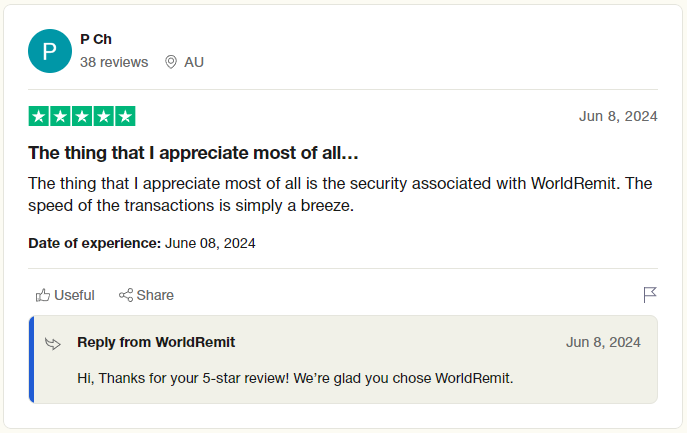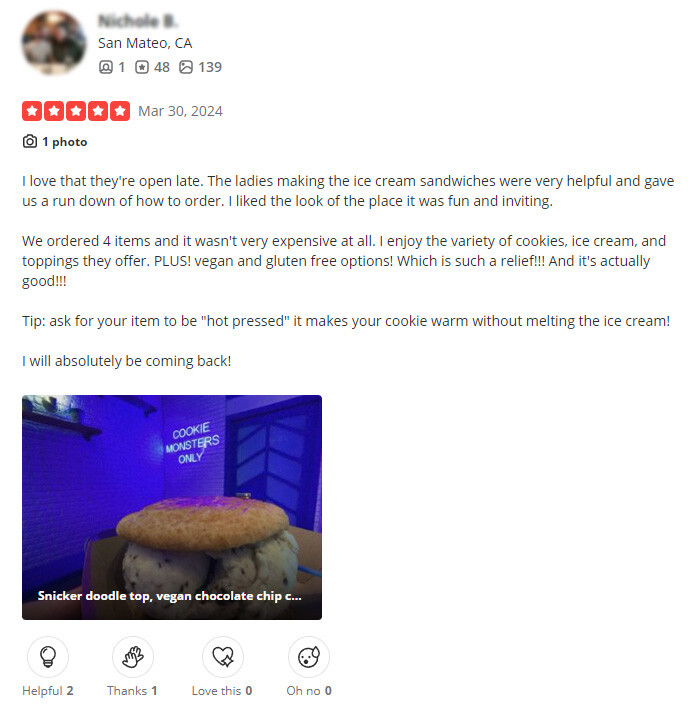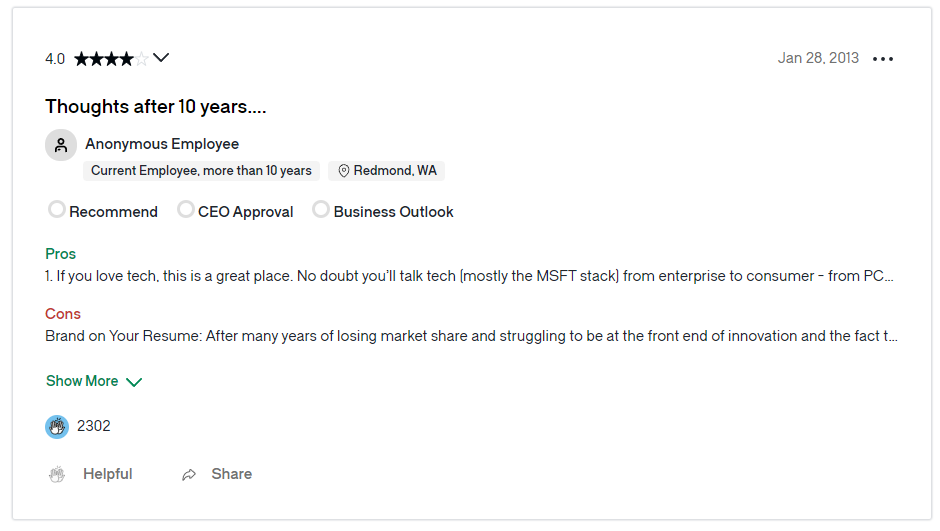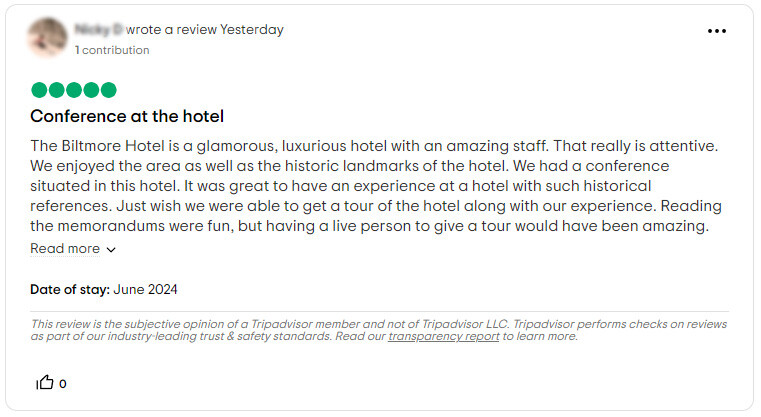
Mastering Online Review Management: The Complete Guide
Consumer opinions significantly impact what people buy. Managing reviews is essential for online reputation management. Beyond mere maintenance, effective review management involves actively monitoring and responding to online reviews and generating more customer reviews across various online platforms.
Table of content
- What is Review Management?
- Main Review Websites
- Use Cases for Review Management
- Benefits of Review Management for Businesses
- Responding To Positive and Negative Reviews: Best Practices
- How to Get More Reviews
- FAQs
What is Review Management?
Review management refers to the process through which businesses monitor, respond to, and influence customer reviews across different online platforms. It encompasses proactive steps to encourage positive reviews, handle negative feedback constructively, and adhere to platform guidelines to maintain authenticity and trustworthiness.
Main Review Websites
Each platform has distinct guidelines and best practices for soliciting reviews and asking clients to share their experiences:
 Google Reviews
Google Reviews Facebook Reviews
Facebook Reviews.svg.png) Trustpilot
Trustpilot Yelp
Yelp Glassdoor
Glassdoor TripAdvisor
TripAdvisor
Google Reviews
🏢 Industries: Essential for local businesses across various sectors.
🛒 Physical or Online: Particularly beneficial for businesses with physical locations.
👥 Audience: Widely used by consumers searching for local businesses and services.
📝 Asking for Reviews on Google is allowed:
- ✅ Encourage Reviews: Businesses can request reviews directly from customers. Custom links can be created.
- ❌ Do Not Offer Incentives: Incentives for writing reviews are prohibited.
- ❌ Do Not Solicit Positive Reviews: Businesses should not ask specifically for positive reviews or attempt to manipulate the review process. More info

Facebook Reviews
Facebook Reviews allow users to recommend a business directly on its Facebook page. These reviews prominently influence the business's profile and can impact purchasing decisions, especially among social media-savvy consumers.
🏢 Industries: Suitable for businesses across all industries.
🛒 Physical or Online: Ideal for both physical businesses (e.g., retail stores, restaurants) and online businesses with active social media engagement.
👥 Audience: Popular among consumers of all ages using Facebook for social networking and local business discovery.
📝 Asking for Reviews on Facebook is allowed:
- ✅ Encourage Reviews: Businesses can request reviews directly from customers.
- ❌ Do Not Offer Incentives: Prohibited to offer incentives for reviews.
- ❌ Do Not Solicit Positive Reviews: Avoid asking for specifically positive reviews. More info
Note - Facebook's guidelines do not explicitly state that businesses can ask for reviews, but there is no prohibition against it. It is generally accepted and noted on other websites that businesses can ask for reviews, provided they do so impartially.

Trustpilot
Trustpilot is a consumer review website that hosts user-generated reviews for businesses worldwide. It's known for its transparency and credibility, allowing customers to share their experiences openly. Businesses can use Trustpilot to build trust through authentic customer feedback and improve their online reputation.
🏢 Industries: Suitable for e-commerce, finance, service industries, and more.🛒 Physical or Online: Effective for both physical and online businesses managing customer perceptions.
👥 Audience: Primarily used by consumers researching products and services online, crucial for e-commerce and service sectors.
📝 Asking for Reviews on Trustpilot is allowed:
- ✅ Encourage Reviews: Businesses can request reviews directly from customers. Custom links facilitate review solicitation.
- ❌ Do Not Offer Incentives: Prohibited to offer incentives for reviews.
- ❌ Do Not Solicit Positive Reviews: Avoid requesting specifically positive reviews. More info

Yelp
Yelp is a platform where customers can review and rate businesses, primarily restaurants and service providers. Reviews on Yelp influence consumer decisions and can significantly impact a business's reputation in local communities. Businesses can claim their Yelp profile to respond to reviews and engage with customers.
🏢 Industries: Ideal for restaurants, local services, hotels, and retail establishments.🛒 Physical or Online: Most beneficial for businesses with physical locations relying on local reviews and recommendations.
👥 Audience: Popular among urban consumers seeking dining, shopping, and local service reviews.
📝 Asking for Reviews on Yelp is not allowed
- ❌ Do Not Ask for Reviews - Yelp prohibits businesses from requesting reviews More info

Glassdoor
Glassdoor specializes in employee-generated content, offering insights into company culture, salaries, and workplace conditions. It's a valuable resource for job seekers researching potential employers and for businesses looking to enhance their employer brand. Glassdoor reviews can significantly impact a company's recruitment efforts and internal culture perception.
🏢 Industries: Critical for technology, finance, healthcare, retail, and other sectors enhancing employer branding and employee engagement.🛒 Physical or Online: For both companies with physical offices and remote culture.
👥 Audience: Popular among job seekers and employees researching potential employers.
📝 Asking for Reviews:
- ✅ Employers can encourage employees to leave reviews.
- ✅ Custom links can be created to simplify the review process.
- ❌ Selectively soliciting reviews or offering incentives for positive feedback is not allowed. More info

TripAdvisor
TripAdvisor is a travel website that aggregates reviews and opinions about destinations, accommodations, restaurants, and activities. It's a trusted platform for travelers seeking reliable information and recommendations based on other users' experiences. Businesses in the travel and hospitality industry rely on TripAdvisor to manage their reputation and attract tourists.
🏢 Industries: Crucial for businesses in the travel and hospitality sector, including hotels, vacation rentals, restaurants, and tour operators.🛒 Physical or Online: Ideal for businesses with physical locations that also communicate with clients online.
👥 Audience: Widely trusted by travelers seeking authentic reviews and recommendations for their travel experiences.
📝 Asking for Reviews:
- ✅ You can ask for reviews and you can create a custom link to ask for reviews
- ❌ Selectively soliciting reviews or offering incentives for positive feedback is not allowed. More info + see guidelines

Use Cases for Review Management
Effective review management goes beyond mere monitoring of customer feedback. It is a valuable tool for businesses to glean insights into various aspects of their products or services, enabling them to enhance offerings and improve overall customer satisfaction. Here are several use cases where review management plays a crucial role:
1. Identifying Product Flaws
Customer reviews often highlight specific shortcomings or issues with products or services. Businesses can pinpoint recurring themes or trends related to product flaws by systematically analyzing negative feedback. Whether it's functionality issues, design concerns, or performance shortcomings, identifying these flaws allows companies to prioritize areas for improvement.
For instance, a software company might discover through customer reviews that a recent update introduced bugs affecting user experience, prompting it to swiftly address these issues through subsequent updates or patches.
![reviews-[Recovered]-1](https://blog.brandbastion.com/hs-fs/hubfs/reviews-%5BRecovered%5D-1.png?width=713&height=442&name=reviews-%5BRecovered%5D-1.png)
Source: Baazarvoice
2. Gathering Product Suggestions
Beyond identifying flaws, customer reviews frequently contain constructive suggestions for product enhancements or new features. These insights can be invaluable for product development teams seeking to align their offerings more closely with customer needs and preferences. By collating and analyzing feedback, businesses can generate a pool of actionable ideas that drive innovation and product differentiation.
For example, an electronics manufacturer might receive feedback suggesting additional connectivity options for a popular device, prompting them to explore these suggestions in their next product iteration.
3. Understanding Selling Points
Positive reviews often highlight specific features or aspects of products/services that resonate most with customers. These selling points can serve as powerful marketing messages, reinforcing brand strengths and differentiating offerings from competitors.
Businesses can effectively leverage customer feedback to attract new customers and enhance brand perception by identifying and amplifying these strengths through marketing campaigns or product messaging. For instance, a skincare company may discover through glowing reviews that customers particularly appreciate the natural ingredients used in their products, prompting them to emphasize this eco-friendly aspect in their marketing materials to appeal to environmentally conscious consumers.
4. Monitoring Competitive Positioning
Review management also provides insights into how a business stacks up against market competitors. Companies can identify competitive advantages or gaps in their offerings by comparing customer sentiment and feedback across similar products or services competitors offer.
This competitive analysis enables companies to refine their marketing strategies, adjust pricing, or introduce new features that resonate more effectively with target audiences. For example, a hospitality chain might analyze guest reviews across various online platforms to benchmark their service quality against competitors and identify areas where they can exceed customer expectations to gain a competitive edge.
5. Enhancing Customer Relationships
Engaging with positive and negative reviews demonstrates a commitment to customer satisfaction and fosters stronger relationships. Responding promptly and thoughtfully to reviews resolves customer issues and showcases transparency and accountability.
This proactive approach can turn dissatisfied customers into loyal advocates and strengthen brand loyalty among existing customers. For instance, a retail store that promptly addresses a negative review regarding a delivery delay by offering a sincere apology and expedited resolution can mitigate potential reputational damage and enhance customer retention.
Streamline Review Management with BrandBastion
We manage responses on your behalf, streamline customer interactions, and safeguard your reputation.Benefits of Review Management for Businesses
Review management is not just about monitoring feedback; it's a strategic approach that can yield significant advantages for businesses across various industries. Here are five key benefits:
Build trust and credibility: Positive reviews act as social proof, reassuring potential customers about the reliability and quality of products or services. When prospective customers see positive reviews and testimonials from satisfied buyers, they are more likely to trust the brand and confidently make purchasing decisions.Increased Sales and Conversions: Beyond credibility, positive reviews directly impact sales and conversion rates. A study by Bazaarvoice found that a collection of 200 reviews can lead to a 44% increase in sales. Favorable reviews reassure potential buyers, reducing skepticism and hesitation in purchasing. They serve as persuasive endorsements that help prospective customers overcome objections and commit to purchasing.

Source: Baazarvoice
Customer Engagement and Loyalty: Review management isn't just about collecting positive feedback; it's also about engaging with customers to build relationships. Managing online reviews, whether positive or negative, shows that the business values customer feedback and is committed to addressing customer concerns. This proactive approach resolves issues promptly and fosters trust and loyalty among customers. Engaged customers are more likely to become repeat buyers and advocates for the brand, amplifying positive word-of-mouth and contributing to long-term business growth.
SEO Benefits and Online Visibility: User-generated content from customer reviews is rich in keywords and phrases relevant to your products or services. This content improves search engine optimization (SEO) by increasing the frequency of pertinent search terms on your website and across online platforms. Additionally, local SEO benefits from reviews, especially on platforms like Google Reviews, where positive ratings and reviews can improve your business's visibility in local search results.
Operational Insights and Product Improvement: Customer reviews provide valuable insights into product strengths, weaknesses, and areas for improvement. Analyzing feedback helps businesses identify recurring themes or issues that may require attention, such as product defects, customer service challenges, or usability concerns. This feedback loop enables proactive decision-making and continuous improvement initiatives. By addressing customer concerns and refining product offerings based on feedback, businesses can enhance overall product quality, customer satisfaction, and competitive positioning in the market.
Responding To Positive and Negative Reviews: Best Practices
Responding to Negative Reviews
When addressing negative reviews, focus on empathy and resolution to maintain customer satisfaction and uphold your brand's reputation:
- Prompt Response: Respond promptly to demonstrate attentiveness to customer feedback.
- Empathize: Express empathy for the customer’s experience and apologize sincerely.
- Apologize: Apologize and mention this is not the experience you want your customers to have.
- Offer Resolution: Provide a solution or offer to resolve the problem to the customer’s satisfaction.
- If Necessary, Move The Conversation Offline: Encourage further discussion offline to resolve the issue privately and effectively.
Responding to Positive Reviews
When replying to good reviews, thank the customer sincerely and encourage them to return. Show gratitude for their positive feedback to build loyalty.
You can also share positive reviews on your website, social media channels, or marketing materials (with permission). This showcases customer satisfaction and builds trust with potential customers.
Note - When sharing positive reviews on your website, social media, or marketing materials, it’s essential to obtain explicit permission from the reviewers. Respect user privacy and ensure compliance with data protection regulations.
How to Get More Reviews & Ask For Reviews
Generating customer reviews is crucial for bolstering online reputation and attracting new customers. Here are effective strategies to encourage more reviews:
- - Emails Asking After Purchase: Send personalized emails to customers shortly after their purchase. Request feedback on their experience and provide a convenient link to leave a review. Keep the email concise and include incentives like discounts or loyalty points for their time.
- - Call to Action on Website: Implement prominent call-to-action buttons on your website, encouraging customers to leave reviews. Use persuasive language and ensure the process is user-friendly, directing them to review platforms relevant to your business.
- - Physical Cards with Purchase: Include a small card with each purchase, inviting customers to leave a review. Provide clear instructions and a QR code or URL directing them to the review platform. This tangible reminder can prompt customers to share their experience immediately after using your product.
- - Trade Products for Reviews: While offering free products in exchange for reviews can incentivize feedback, be aware that some review websites have strict policies against incentivized reviews .
- - Request Reviews During Customer Support Interactions: After successfully resolving a customer support issue, politely ask the customer if they would consider leaving a review based on their experience. Favorable resolutions often lead to positive reviews.
FAQs
Addressing common queries regarding review management:
Yes, businesses can request Google reviews but should avoid incentivizing or selectively soliciting positive feedback.
 Source: Google
Source: Google- Amplifying Positive Sentiment: Highlighting positive reviews across marketing channels boosts credibility and attracts customers by showcasing real-life satisfaction.
- Addressing Negative Feedback Proactively: Responding promptly and empathetically to negative reviews demonstrates commitment to customer satisfaction, mitigating potential reputational damage.
- Using Insights for Improvement: Analyzing review trends identifies areas for product/service enhancement, guiding operational improvements and maintaining high standards.
- Monitoring Across Platforms: Regularly monitoring reviews on diverse platforms—including social media and industry-specific sites—ensures timely responses and enhances customer trust.
- Integrating Reviews into SEO: User-generated content from reviews enhances SEO by incorporating relevant keywords and improving local search visibility.
By strategically leveraging customer feedback, businesses manage their online reputation effectively, foster customer trust, and drive business growth.
In conclusion, effective review management is integral to a robust ORM strategy. It requires proactive engagement, adherence to platform guidelines, and strategic utilization of customer feedback. By integrating these practices, businesses not only safeguard their online reputation but also harness the power of reviews to drive sustained growth.
Streamline Review Management with BrandBastion
We manage responses on your behalf, streamline customer interactions, and safeguard your reputation.